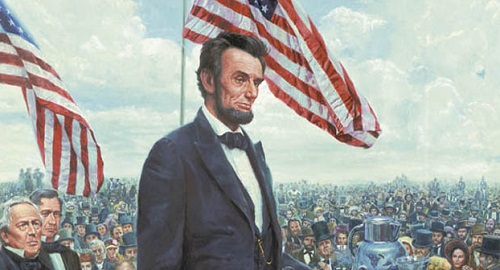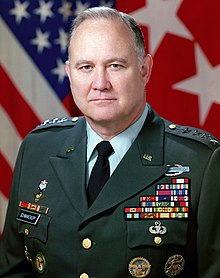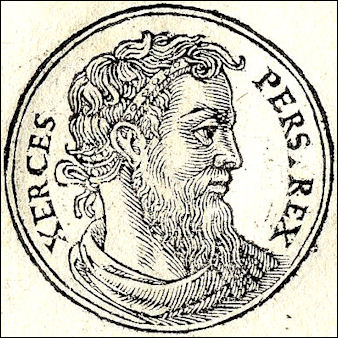Duty,
Honor, Country
At the conclusion of the
memorial service for our veterans, the Honor Guard removes and folds the
American Flag and then there is a twenty-one gun salute. Then one of the Honor
Guard retrieves three of the expended shells and places them inside of the
folded flag and informs the family the three shells represent duty,
honor, and country. At the conclusion, the American Flag is presented to
the family on behalf of The President of the United States

Duty, honor, and country the three reasons, one
answers the call of their country in time of war or to serve in the military.
The soldier despises war like no other. They do not seek glory, honor,
accolades or medals. They seek the solitude of their family and cherish every
breath they take. This is why they answer their country’s call. Perhaps it is the
words penned 156 years ago on a battlefield that exemplifies the soldiers'
feelings “…the world will little note, nor long remember, what we say here, but
it can never forget what they did here. It is for us the living, rather, to be
dedicated here to the unfinished work which they who fought here have thus far
so nobly advanced. It is rather for us to be here dedicated to the great task
remaining before us – that from these honored dead we take increased devotion
to the cause for which they gave the last full measure of devotion…” Abraham
Lincoln, November 19, 1863, The Gettysburg


Brethren as Americans we must
come to the stark reality to the following facts:
1.
These are serious
times before our country and they demand serious citizens.
2.
We have a duty to
our families, our ancestors, and our posterity to be responsible citizens.
3.
Freedom is not
free.


As Masons, we understand the
imagery of the compass and its purpose for the geometrician. I suggest today America
There are over 2,523,156
people in the state of South Carolina

There are several lessons we can learn from the past. Through studying past battles in history one can learn the military strategy and we can gain renewed strength for the task before us. Two such examples are General George S Patton and General Norman Swartzkoph. General Swartzkoph had studied the past wars in thePersian Gulf and he had developed a good
strategy. I find it interesting to note
a quote General Swartzkoph gave, “Leadership is a potent combination of strategy
and character, but if you must be without one, be without strategy.”

There are several lessons we can learn from the past. Through studying past battles in history one can learn the military strategy and we can gain renewed strength for the task before us. Two such examples are General George S Patton and General Norman Swartzkoph. General Swartzkoph had studied the past wars in the

General Patton a
descendant of a first cousin of George Washington, Frances Gregory. General
Patton studied the war strategy of the Carthaginian General Hannibal. Here is a
quote from General Patton worthy of our consideration “Moral courage is most
valuable and usually the most absent characteristic in men.” Each General
studied past military battles and applied what worked and incorporated them into
their strategy. The result was military victory based on divine providence
and historical data. But there is a third example that we can gain strength
from. When we consider the 274 lodges and the enemies of masonry we must
combat, the task is overwhelming. How can a mere 274 overcome such overwhelming
odds? Remember Thermopylae ?

In 480 BC, Xerxes, the son of
Darius who was the King of Persia assembled an invasion force of over 350
thousand to invade Greece Athens Greece
In the 6th century, the Greeks found themselves under the control of the Persians. In the years
499-494 B.C. the Ionians aided by the Athenians revolted against Persia Miletus
Every time Darius dinned he
ordered one of his servants to say three times aloud “Master remember the
Athenians.” In 490 B.C. Darius remembered the Athenians and he sent an invasion
force across the Aegean . They were greeted by
the Athenians on the plain of Marathon. In a glorious victory, the Athenians
lost a mere 192 men, while the Persians lost over 6000. Darius would not live
to launch another invasion; this task would fall to his son and heir Xerxes.

Xerxes sent heralds to King Leonidas demanding earth and water. The demand for earth and water
symbolized that those surrendering to the Persians gave up all their rights
over their land and every product of the land. Thus giving earth and water
they recognized the Persian authority over everything; even their lives
belonged to the king of Persians. King Leonidas responded at that time by
throwing the heralds into a pit and the remaining emissaries into a well, with
a suggestion to dig out earth and water for themselves. King Leonidas
being made aware of the Persian advance put aside traditional enmity and formed
an Ally Force. Then he devised a plan with his life long friend Themistokles. They
agreed on a combined army and navy attack, Themistokles would lead the naval
forces while Leonidas would march to meet the Persian Army at Thermopylae .
This Ally Force was formed at the beginning of 480 B.C. When Xerxes had
reached Mount Olympus Thermopylae , 7000 Greeks would
join the Spartans. The Spartans were a brutal people with one of the most
militaristic cultures in history. At the age of seven, every Spartan boy was
taken from their families and enrolled in a state-operated “Spartan Boot Camp”.
Mothers would tell their sons “bring your shield home or be on it.”
The Greeks held the best
possible defensive position at Thermopylae , at
its largest point it is a mere 200 yards wide. On the south side is Mount Colyodromus Aegean Sea .
They would make their stand at a mountain pass called the “hot gates” named for
its thermal springs. The mountain pass along the coast was about 50 ft wide;
this is where King Leonidas and the Spartans would make their last stand. Their
motto was “stand and die.”
Xerxes had excellent reconnaissance and he
knew the Greeks were waiting. His spies told him that 7,000 Greeks awaited the
mighty Persian Army, so he set up camp on a plain below the pass. Xerxes was
confident to the point of blind arrogance, but the army was so large they could
not afford to camp in one place for very long due to the vast food and supplies
they required. Xerxes could not believe they intended to fight; he announced
his presence and waited four days for them to leave. After all, Xerxes mighty
army outnumbered the Greeks 50 to 1.
When King Leonidas was
preparing to make his stand, Xerxes sent another envoy to explain the futility
of standing in opposition of the Persian Army. “Our archers are so numerous,” said
the envoy, “that the flight of their arrows darkens the sun.” “So much better”,
replied Leonidas, “for we shall fight them in the shade.”
The Spartans fought in platoons of what was called a phalanx. A phalanx was a group of 8 men across and 4 deep. This would allow fewer men with greater flexibility to combat a greater army. The mountain pass would be a choke point and would serve as an ally for the Spartans and a fierce advisory for the Persians. On the fifth day, Xerxes ordered an attack. He sent the 5000 Medes, ordering the Spartans be taken alive. The Spartans advanced through the choke point in the mountain pass and after the first volley the Spartans broke ranks to the point of turning the backs. The Medes were now confident that they were winning the victory broke ranks to pursue. Once the Spartans reached the choke point they turned and regrouped into phalanxes.

The Medes were caught off guard and were soon defeated. After the first day of battle, each side was allowed to retrieve their wounded and clear the battlefield. In an act of sheer defiance, the Spartans would take the dead bodies of their enemies and build a wall creating a mockery to greet the Persians upon their return. The 2nd day of the battle was now the 6th day. Now the Persian moral was dwindling with the regular army being butchered before their very eyes. It must have been very demoralizing to see a wall of thousands of dead Persians. Xerxes exasperated at not being able to defeat them Spartans would now send the immortals, his best troops numbering 10,000 against the Spartans. They were a magnificent sight, but they lacked full body armor. They were called immortals due to the fact when one would be killed another was in the rear ready to take his place. The Spartans would use the same strategy as before, with the same results.
The Spartans fought in platoons of what was called a phalanx. A phalanx was a group of 8 men across and 4 deep. This would allow fewer men with greater flexibility to combat a greater army. The mountain pass would be a choke point and would serve as an ally for the Spartans and a fierce advisory for the Persians. On the fifth day, Xerxes ordered an attack. He sent the 5000 Medes, ordering the Spartans be taken alive. The Spartans advanced through the choke point in the mountain pass and after the first volley the Spartans broke ranks to the point of turning the backs. The Medes were now confident that they were winning the victory broke ranks to pursue. Once the Spartans reached the choke point they turned and regrouped into phalanxes.

The Medes were caught off guard and were soon defeated. After the first day of battle, each side was allowed to retrieve their wounded and clear the battlefield. In an act of sheer defiance, the Spartans would take the dead bodies of their enemies and build a wall creating a mockery to greet the Persians upon their return. The 2nd day of the battle was now the 6th day. Now the Persian moral was dwindling with the regular army being butchered before their very eyes. It must have been very demoralizing to see a wall of thousands of dead Persians. Xerxes exasperated at not being able to defeat them Spartans would now send the immortals, his best troops numbering 10,000 against the Spartans. They were a magnificent sight, but they lacked full body armor. They were called immortals due to the fact when one would be killed another was in the rear ready to take his place. The Spartans would use the same strategy as before, with the same results.
Now treachery would rear its ugly
head and would undo their heroic efforts. A Greek traitor went to Xerxes and
sold his integrity, by informing Xerxes of a goat path that went around the
Spartans position.
Xerxes sent spies and soon
discovered he was telling the truth; so he made preparation to outflank the
Spartans and come behind their lines. Leonidas knew about the path and he had
posted the men of Phocis to guard the goat
path. The Phocians were outnumbered and lacked the dedication of the Spartans.
Hearing the sound of 10,000 troops advancing filled their hearts with terror;
they put up little resistance and soon retreated to guard their families’ miles
away. Leonidas learned of the treachery shortly before daybreak. Unwilling to sacrifice
the entire Greek army Leonidas orders the army to retreat and fight another
day. The 300 Spartans would remain after all this was a day they had waited
for since childhood.
The Spartans welcomed death and fought all the more fiercely.
Four times the Persian advance was defeated with heavy losses, including two of
Xerxes brothers. The phalanx would soon break and the Spartans would make their
last stand on a small hill. They would form a circle facing outward. When
Leonidas fell he was separated from the remaining Spartans. Seeing their King fall
a small group formed a unit, fought their way to their King, not willing for
his body to be mutilated. They would retrieve his body and fight their way back
to the remaining group.
Herodotus was known as “the father of history”. Herodotus’s
purpose was to give a rational account of the cause of war and to preserve the
memory of heroic deeds. Herodotus informs us the Persians demanded the body of
Leonidas in return for the remaining Spartans lives. This demand was promptly
refused to declare “A Spartan leaves the field with his shield or upon it.”
Xerxes would withdraw his forces to fulfill his envoy's proclamation by
“darkening the sun.” So the last Spartans were killed by a barrage of arrows
due to the fact the Persians were fearful of the hand to hand combat with the Mighty
Spartans.

The goat path in our masonic battle is the anteroom. We
must guard against not only the Cowan and Eavesdropper from entering our
lodges. We must be ever vigilant against them from entering the anteroom by way
of a petition and the ballot box. If a man does not have temperance, fortitude,
prudence, and justice then he should not be given a petition, no matter how many
times he asks. It is our blue lodges that have failed our great fraternity. We
have allowed those unskilled and unworthy to enter by way of the goat path;
they have outflanked us as they did at Thermopylae .
They have entered the York Rite, Scottish Rite,
Shrine and other Appendant bodies. These Cowans are not desirous of
laboring in the quarries of Freemasonry. They seek glory, titles, and self-gratification. We in the blue lodge have allowed the aspirants to become
diluted with men filled with vainglory. Just because a man asks for a petition
does not mean he is worthy to receive one. Masonry is not for everyone and
everyone is not for masonry. Recently I was asked a question by an older mason,
He asked me, “How he could solicit someone for membership?” I realized this
question was asked in ignorance. His intentions were noble but misguided. “We
do not solicit membership,” I replied. I shared with him what I do if there was
someone in my circle of acquaintance, I felt had masonic attributes. I
encouraged him to invite them to their Inspirational Meeting and perhaps the
ladies night or friends and family day.

A Mason is prepared first in
his heart by applying the tenants of masonry long before he hears them in the
work. A man does not become a Mason first in his ear when someone solicits him
for membership. When you hear someone complaining about our membership
declining, remember we will not defeat the enemies of masonry by sheer numbers.
We will win with our fraternity dedicated to duty, honor, and country. So if you
are disheartened think of quality not quantity and remember Leonidas and the
last stand at Thermopylae . Yes, a Spartan
leaves the battlefield with his shield or upon it. A Mason is one that leaves
the battlefield of life with his honor intact, and with his dying breath he
says my life you may have, but my integrity never.
May God Bless America
Your friend and Brother from Inman
Jay Adam



Well stated my Brother.
ReplyDelete